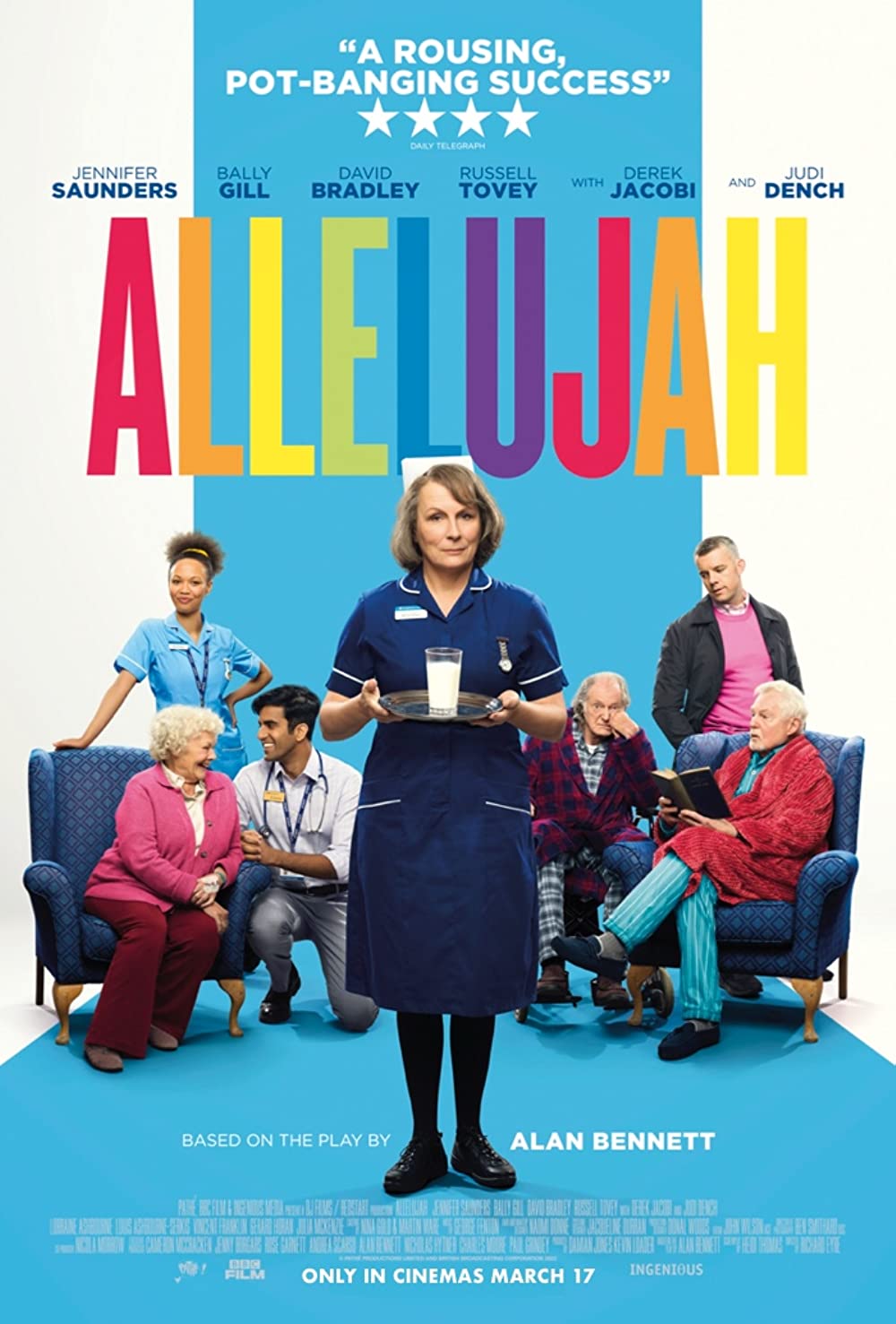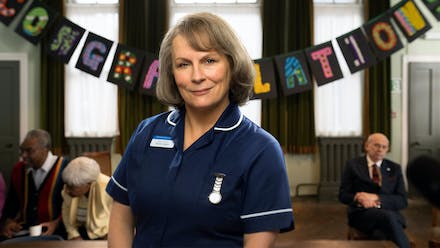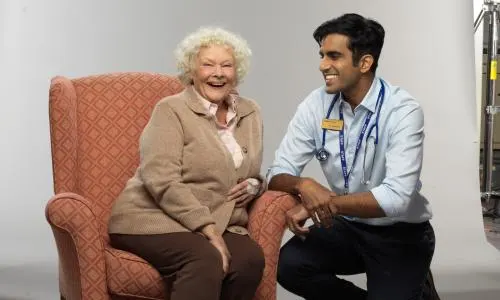If I had taken any notice of the reviews then I should certainly not have parted with £12 for a cinema ticket to see this film. Based on the play by Alan Bennett, this slow, intentional and warm the film explores age and care and human nature in the face of pandemic, NHS resources and complex family relationships.
Set in Yorkshire ( the accents are wonderfully captured ) the context of this deep dive into all our destinies is a geriatric ward in a small Yorkshire hospital ( the Beth). It is threatened with closure. When we join the story the fight back has started. Local support, the friends of ‘the Beth’ and a film crew all have their voice in the unfolding narratives and its revelations.
Slowly we see and feel the character of the place as they prepare for a concert with a choir of patients energetically conducted by Gerald played by Ross Tomlinson. The hospital decides to fight back by galvanising the local community: they invite a news crew to film their preparations for a concert in honour of the hospital’s most distinguished nurse.
We get to know each of the patients and their world and struggles with limitations, dependency and pain. We understand ( or think we do ) those brave staff who labour for the patients and their comfort. Sister Gilpin (below left – played by Jennifer Saunders) manages the Ward and its admissions protecting the staffing level against the constant external pressure from other hospitals to help them out by taking an elderly patient off their hands. Dr Valentine ( Bally Gill below right with Mary Moss played by Judi Dench) humanises the space through his compassion and care. Dependable, regular, committed he never tires of demonstrating patience and rather moving expressions of care to one and all through the long days. He shows us what deep and lasting humanity looks like.
Politics and economics are never very far away in the midst of the ‘Beth’ being threatened with closure. Limited resources and ever-growing demand are recurring themes.
Colin Coleman, an management consultant working with the NHS represents the new economics played by Russell Tovey. His tense and sometimes dysfunctional father happens to have been admitted to the Hospital. Amidst the anger and frustration ( on both sides) of the relationship Colin sees the value of the care and a value that is beyond the metrics of efficiency. It is a lesson ( for him) that is a hard one to learn, and one which, perhaps in the end turns around his career, and possibly even his relationship with his ailing father.
It is difficult to find an affirmative and appreciative review of this film. While some of the criticisms may well have some validity, I think the film helps us to inhabit some of the deeper realities of what getting older looks like and feels like. Consider the sheer physical diminishment in old age – the way in which our bodies change and slow up. There follows a consequent need for help and support even with the most basic of human needs. Our privacy and our independence are threatened to the core by these frailties over which few of us cant exert any control.
For some the memory shifts and a small number may struggle to remember well. Even those gifted with good memories may struggle to look back with any sense of contentment and feel frustrated at the limitations imposed by frail old age. One of the huge strengths of this film is to see these vulnerabilities represented in a sensitive and compassionate way. The teacher, reading and remembering the poetry that brought them to life. The miner that remembers the struggle to keep the pits open in the 1980s. The librarian who care organises and sees much of what others overlook and persistently, if not prophetically points as always to what lies at the margins of peoples lives. Or the woman who bangs her tray whenever she needs the loo. What will we be ? What are we becoming?
I think the over clever reviews, perhaps, don’t pay enough attention to the humane and sometimes you are the beautiful representations of this frail time of life. There is compassion in these fragments of connection and insight into old-age and with each character we are enriched by their lives which are wonderfully represented and acted.
There is a twist at the end, which is surprising perhaps – so will play into a number of unsatisfactory ways of imagining that we can and should try to control this part of our lives. Certainly we need good care. We absolutely need to think about how we ourselves might prepare for a frail old age. We also need to build communities for attention, relationship, sensitivity, and agency that become part of the fabric of building a community. In these places of relationship we might all feel heard and valued, and in this feel a sense of value that come from being understood.
I once asked a Roman Catholic Sister in Sydney Australia way back in the 1990’s why was that so many of us were prejudiced about older people ? Why do we marginalise the role and place of our elders in society and family?
This nun was a woman who had dedicated much of her life to working with people living with dementia. ‘I think it’s quite simple James ‘ she replied, ‘ it scares the hell out of most of us, imagining what old-age has in store for us, but what we can do now is to befriend the elderly stranger in us and get ready for the liberation of age in all its possibilities.’
I think this film can help us to see what it means to be human, to be vulnerable and to be older. It also reminds us that we must stand up and be counted in relation to priorities and resources for older people. To be human is to die and there is much for all of us to befriend.
Take a chance on the film – its good and warming and real.




Great review. I think the film should be seen by everyone. I don’t think the twist at the end happens everywhere but there is much to discuss there too.
Thank you.